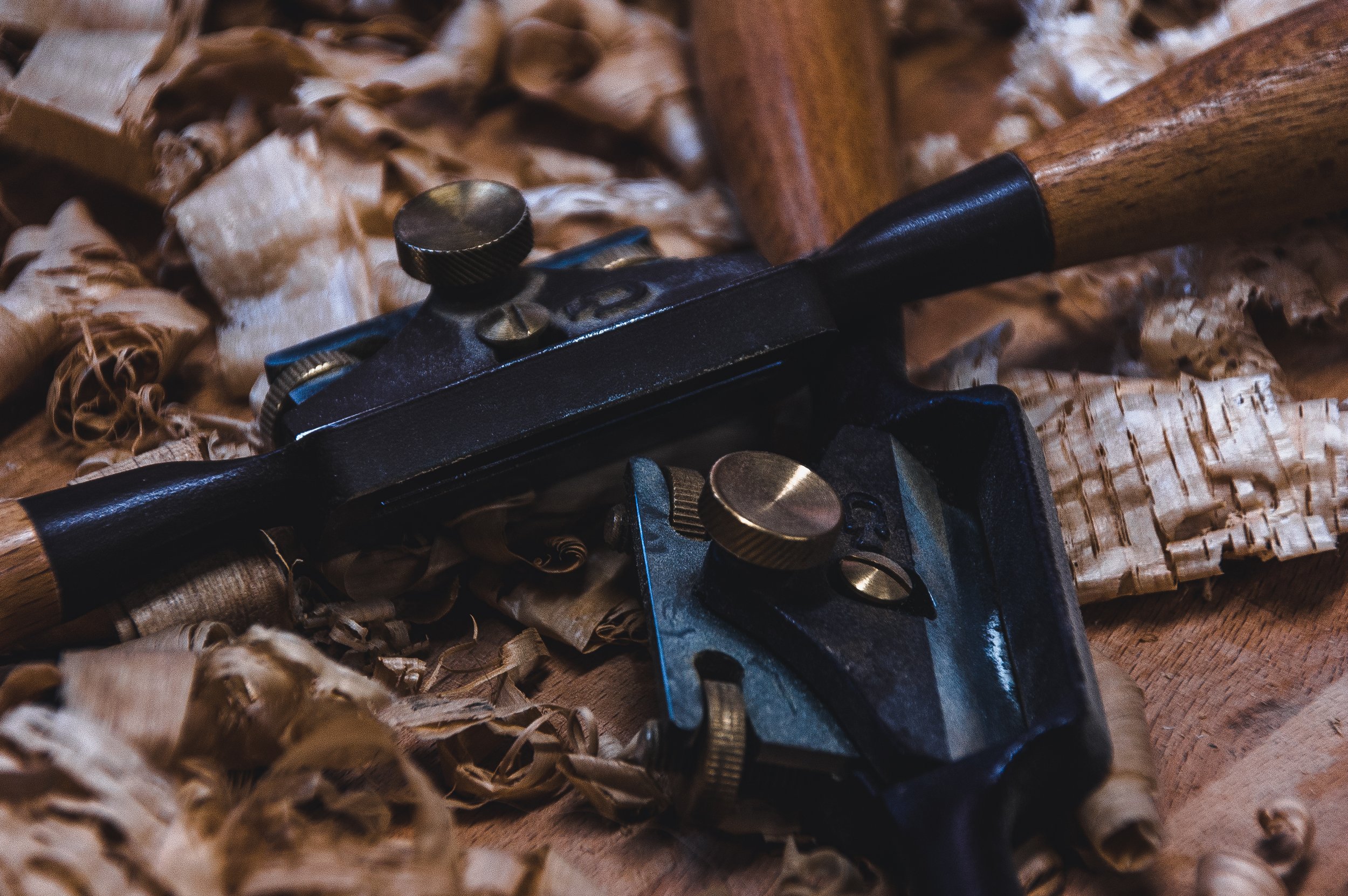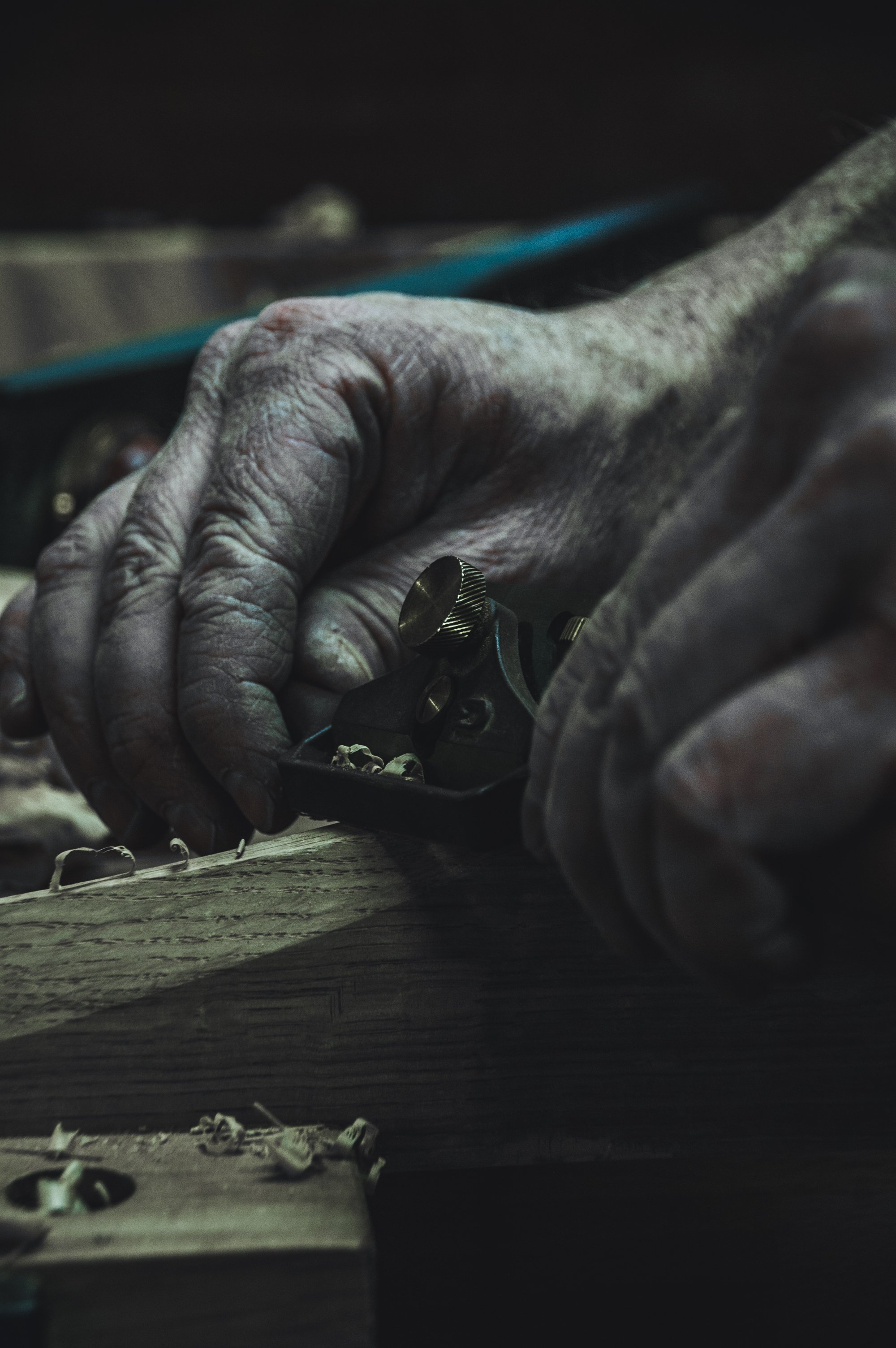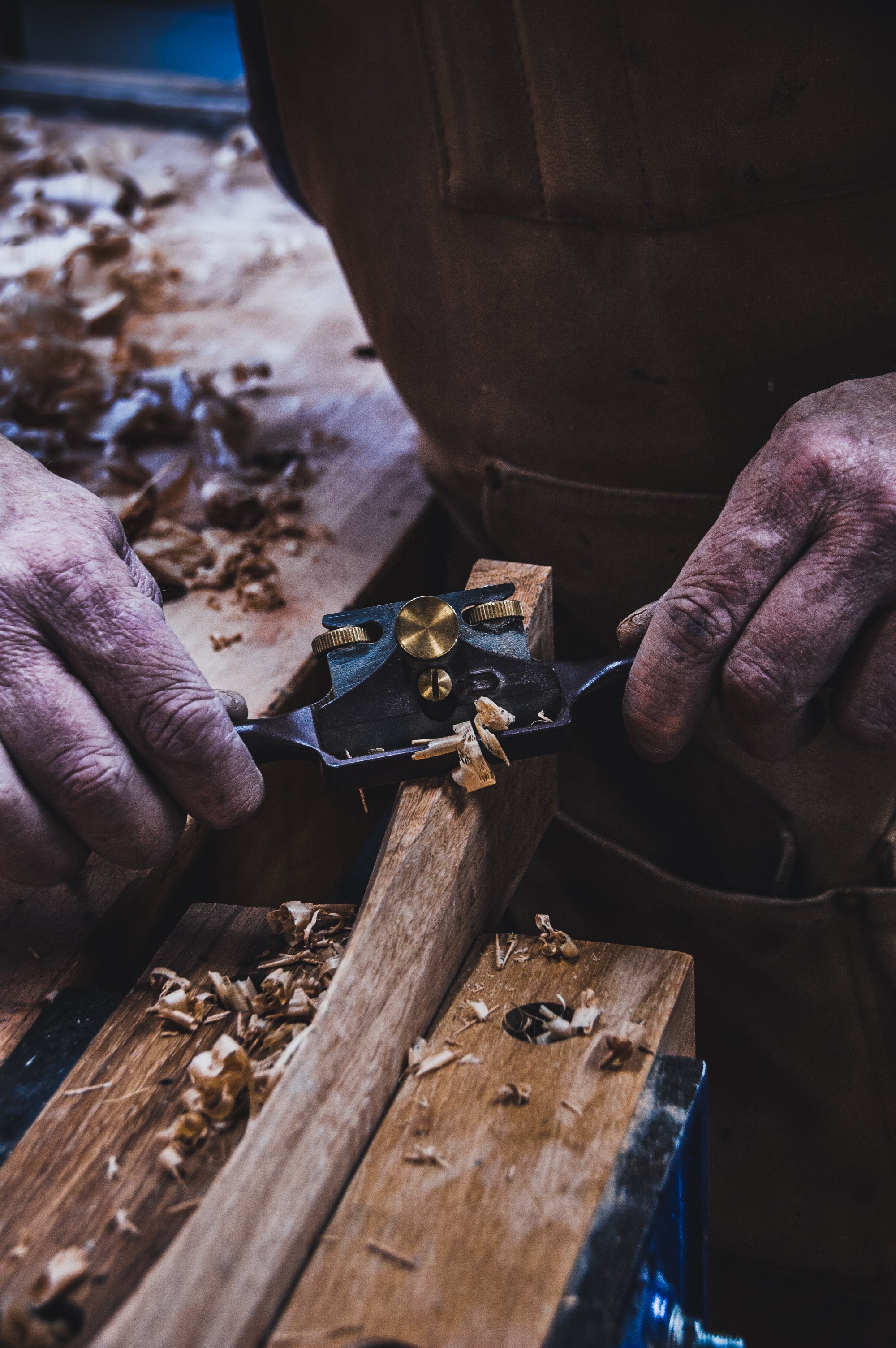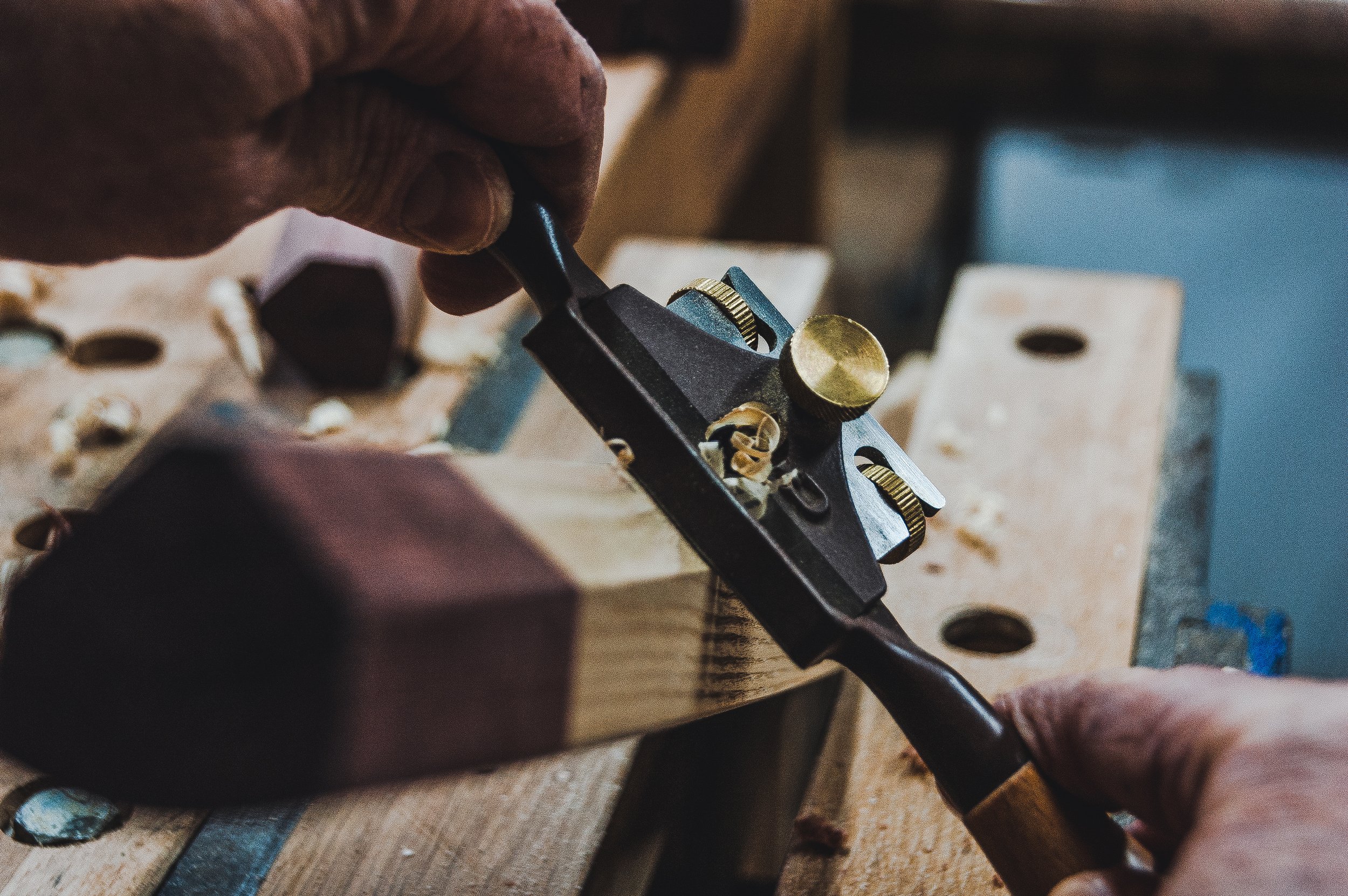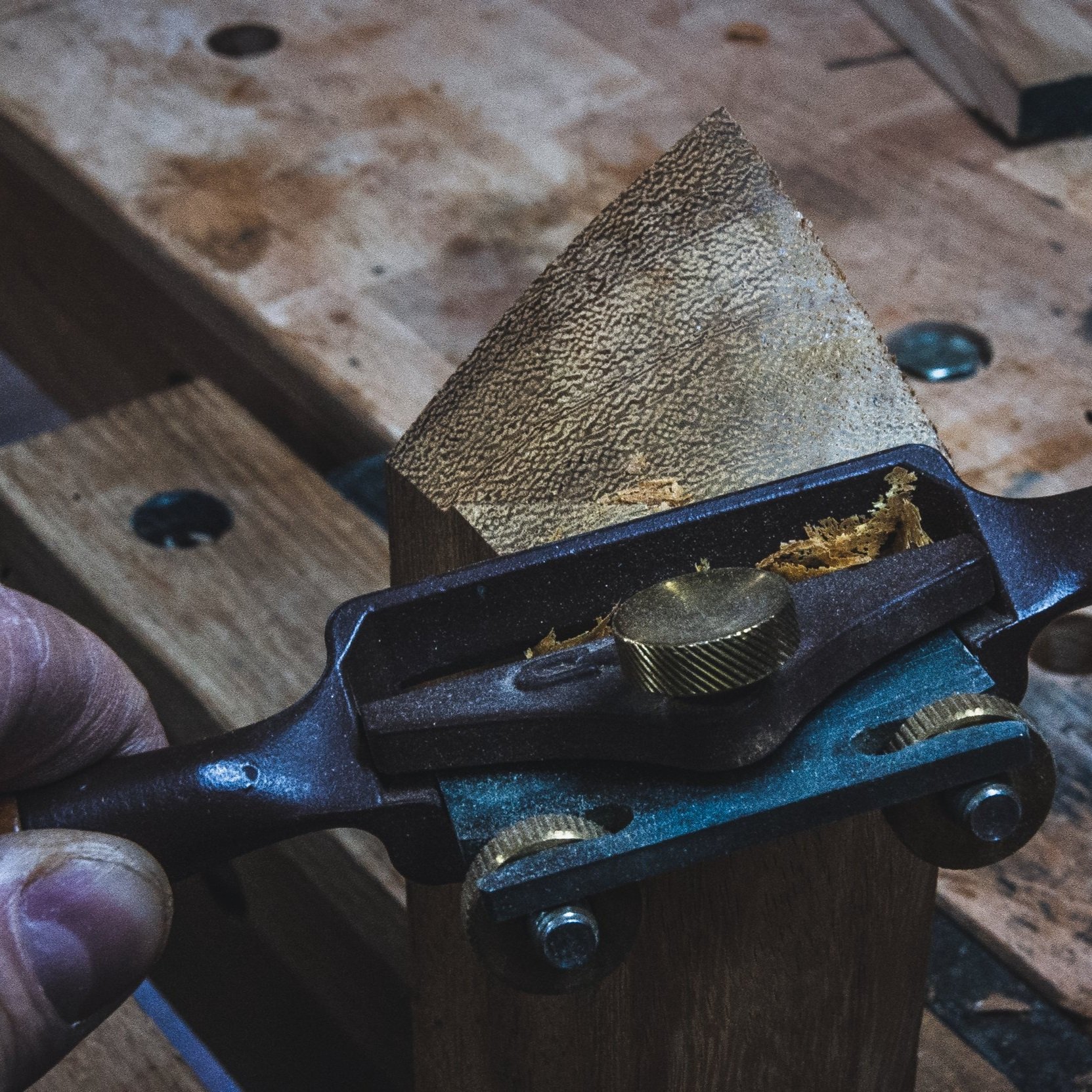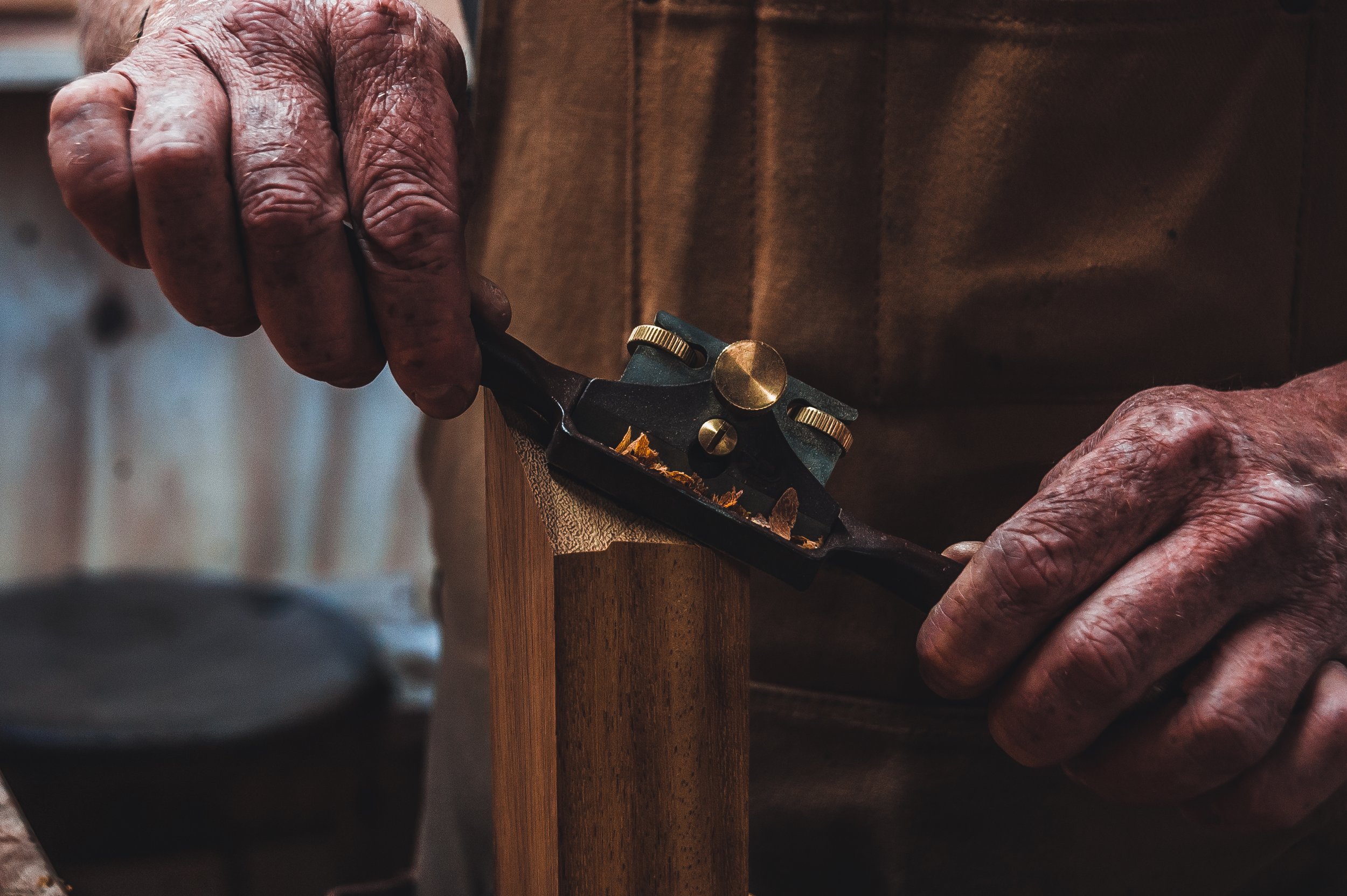One of my favourite tools to use in the wood shop is the Spokeshave. What is a Spokeshave I hear you ask? Think of it as a small plane held by shapely handles in line with the plane iron. The handles afford a lot of control to shape and smooth the wood.
As the name suggests, spokeshaves were once used to shape the spokes of wheels but also paddles, bows and arrows. The name dates back to at least the 16th century though the early history of the tool is not well documented. Over the years others such as furniture makers and carpenters have gladly accepted these useful shaping tools. Historically, a spokeshave was made with a wooden body and metal cutting blade. With industrialisation metal bodies displaced wood in mass-produced tools. As would be expected with a tool that has found use in many trades, there is a wide variety among the styles of spokeshaves, their sizes and the shapes of handles and soles.
Whilst I am not a collector, I do own a varied selection that I use to shape my work. Two I have in my collection (despite me saying i’m not a collector! ) which get the most use are a brand called Dictum. One has a flat base and the other has a curved based useful for planing the inner radius of curved parts. Both of these have wooden handles which I find the grip very comfortable.
Spokeshaves are used two handed, and are either pushed or pulled depending on the circumstance. As with hand planes, spokeshaves are generally used 'with the grain' to reduce tear out.
There are several different types of spokeshaves, Flat, rounded, concave and convex. There is also a combination with a convex and concave cutter to save time switching tools.
Flat base spokeshaves are typically used to shape wood on the outer radius or shaping into straight lines while round spokeshaves are used for shaping rounded surfaces, particularly useful for internal radiuses.. Both types have adjustable blades that can be moved up or down to control the depth of the cut.
Using a spokeshave requires a bit of practice and skill, as the blade must be held at a consistent angle while pushing or pulling it across the wood. It's important to maintain a firm grip on the handle and to keep the blade sharp to ensure clean, precise cuts.
One of the benefits of using a spokeshave is that it allows for more control and precision than using a power tool. It's also a quiet and low-impact tool, making it a good choice for those who prefer a more traditional, hand-powered approach to woodworking.
Overall, the spokeshave is an essential tool for any woodworker or craftsperson. Its versatility and precision make it a valuable addition to any workshop.



